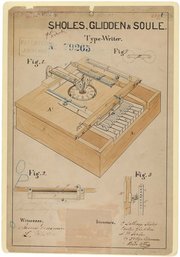J.R.
SOLONCHE
The
Desk
1.
The desk is a desert.
But where else can I plant
the white flowers?
2.
The desk, the paper, the pen.
These three inseparable brothers.
They even sleep together.
3.
Old man white paper is my guest.
He must not leave without
finishing the black wine.
4.
The desk is getting old.
Everyday there are more and more
wrinkles on her face.
5.
The white paper is the door
I have cut in the wall of the desk.
When my pen taps, who will open it to let me in?
6.
The desk is my palomino,
the paper my saddle, the pen my whip.
No, this is cruel.
7.
Tonight the desk
is nothing but my elbows’
hard wooden bed.
To
the Deaf Student in My Poetry Class Before I Play a
Recording of Dylan Thomas
I don’t know what to say.
But don’t worry.
I will not assign you the essay the others will have to write.
I don’t know what to say.
He was Welsh.
I was hoping that would be all I’d need to say.
But it isn’t. I know. Okay.
Let me tell you about his voice.
His voice is a bass-baritone voice.
His voice is a deep, broad, full, bass-baritone voice.
His voice is not thin anywhere.
Can you imagine that?
His voice has no hint of tin in it.
Does that make any sense?
His voice is a deep, broad, full yet clear bell with no tin in
it.
His voice is a bass-baritone bell.
His voice is the ringing of the bells of Welsh churches.
Can you imagine that?
His voice is the bells of the churches of Wales,
sometimes sounding births, sometimes deaths,
sometimes sounding weddings, sometimes alarm,
sounding sometimes weather or the sea,
or sometimes only the time of day.
Does any of this make sense?
He was Welsh.
He was a singer.
He died from drinking seventeen straight whiskeys
in a saloon in New York at age 39.
I don’t know what to say.
Here are the poems he reads.
Read them to yourself.
Sing them to yourself.
Ring them to yourself.
Become a bell in a Welsh church.
Don’t worry.
I will not assign the essay the others will have to write.
Write what you hear.
Be a Welsh church bell.
Sway to and fro in your chair.
Don’t worry.
Just write what you hear.
Don’t worry.
It will be the best poem in class all year.
It will be better than anything I have to say.
Toy
Poem
This is my toy poem.
I hope you like it.
I made it in the workshop.
I sawed it and sanded it
and glued it and screwed
it and painted it and
finished it to a glossy
finish and signed my
name on the bottom of it.
Please don’t pick it up.
Please don’t play with it.
It will fall apart.
A
Young Poet and an Old Poet
A young poet brought some poems he had written to an old poet he
respected. The poems were full of airy sentiments, vagueness and
philosophical generalities. The old poet read the poems with patience.
Every so often he made a barely audible humming sound. Then he
gave the poems back to the young poet and said, A poem must
have a body as well as a soul. The young poet went home to his room
where he tore up the poems. He put the pieces in a bowl. Then he
wrote new poems, which, on the next day, he brought to the old
poet he respected. These new poems were full of very specific details,
the names of things both natural and man-made, and much matter-of-factness.
The old poet read the poems with patience. Every so often he made
a barely audible humming sound. Then he gave the poems back to
the young poet and said, A poem must have a soul as well as
a body. The young poet went home to his room where he tore up the poems.
He put the pieces in the bowl that held the pieces of the old poems
he had torn up. He mixed the pieces together and spilled them out
onto the table. He glued the pieces together and the next day brought
them to the old poet he respected. The old poet did not have to
read the poems because he could see what the young poet had done.
He saw that pieces did not fit. He said, A poem must have a
body and a soul with no space or seam between them. The young poet was
despondent. He went home and threw the poems in the river. A year
later, while walking by the shore of the ocean, the young poet
saw something in the water. He bent over and picked it up. It was
a shell with paper inside. On the paper was written a poem. The
young poet brought it to the old poet he respected. The old poet
read the poem and right away said, This is a poem. Hang it
out on a pine branch to dry.
Back to Top
Review Home
|
![]()
 REVIEW
AMERICANA
REVIEW
AMERICANA